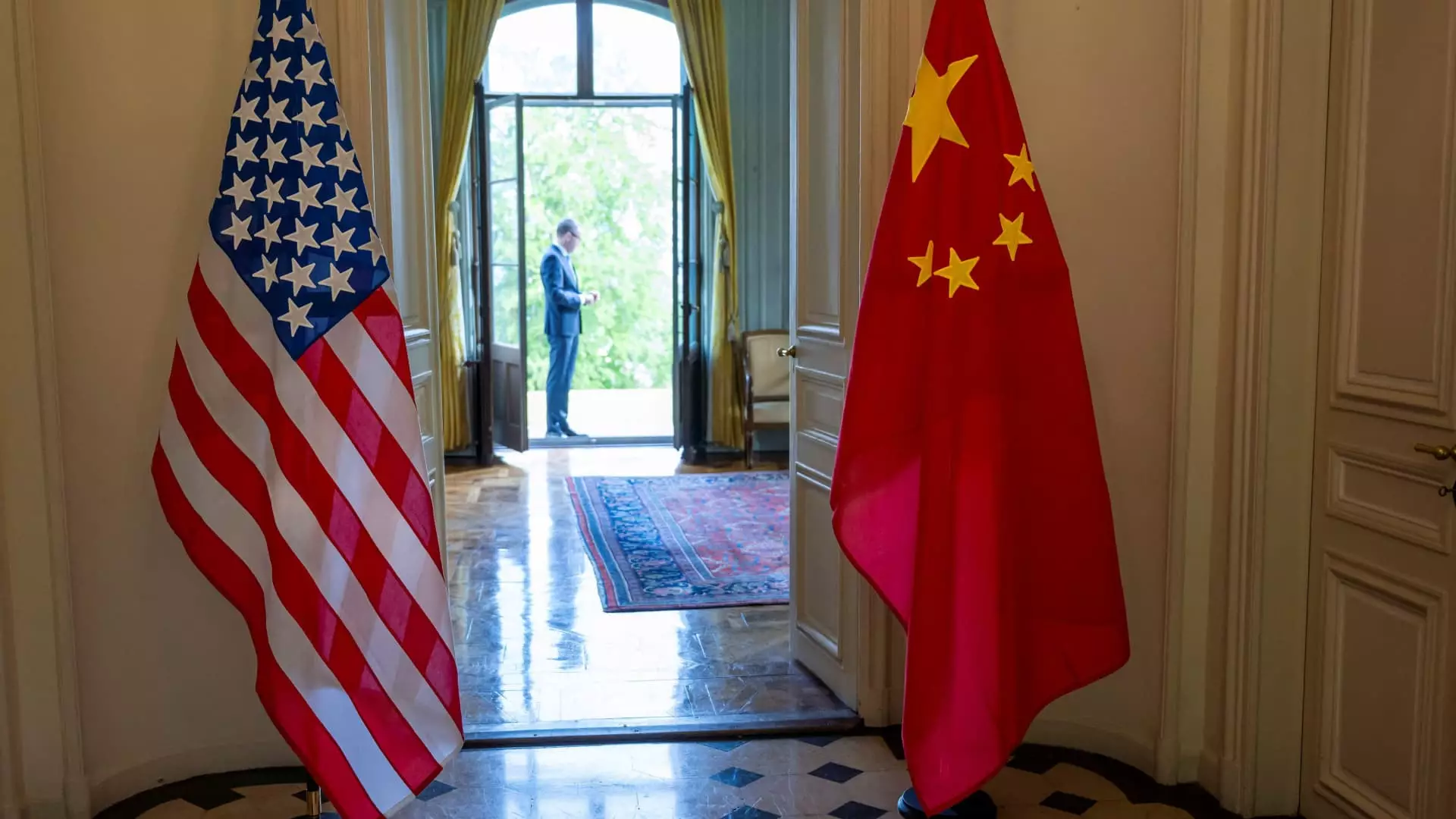In the labyrinth of international trade dynamics, U.S.-China relations remain a focal point of global economic stability. Recent statements from U.S. Treasury Secretary Scott Bessent highlight a growing urgency for direct communications between both nations’ leaders to break the current gridlock. Amid escalating tensions and regulatory complexities, one can’t help but question: will higher-level dialogue be the catalyst needed to reboot cooperation, or will it merely serve as a fleeting gesture?
Bessent’s remarks come at a time when trade negotiations appear to be running into a wall, necessitating a significant intervention from Presidents Joe Biden and Xi Jinping. In his interview, Bessent expressed optimism that further discussions were on the horizon, suggesting that a direct call between the two leaders could soon take place. This optimism is rooted in a recent agreement in Switzerland that aimed to ease tariffs and foster goodwill. A timeline of 90 days to rollback punitive fees is notably ambitious, but the true challenge will be in sustaining this momentum amidst ongoing geopolitical discord.
The Unresolved Issues That Linger
While Switzerland marked a moment of tentative agreement, the shadow of unresolved issues threatens to derail genuine advancement. The U.S.’s ongoing enforcement of technological restrictions has provoked fierce reactions from China, with officials signaling their discontent at every opportunity. Coupled with China’s reluctance to lift the grip on rare earths exports—crucial materials in technology manufacturing—the stalemate could persist unless both parties show a willingness to compromise. It begs the question: how can meaningful negotiations occur if critical barriers remain intact?
Chinese Ministry of Commerce Spokesperson He Yongqian recently reiterated Beijing’s stance on chip export controls, framing them under the guise of national security and stability. This defensive posture complicates the dialogue further, as the U.S. persists in viewing tech exports as a national concern too. The inherent complexity of these issues demands that both nations come to the negotiation table equipped not just with strategies, but also with an understanding of the implications of their demands.
The Influence of Domestic Politics
Intricately intertwined with international relations is the influence of domestic politics, which plays a substantial role in shaping each nation’s strategy. In the U.S., the political landscape is charged with a multitude of narratives surrounding China, especially as trade tensions resurface. President Biden, facing a slew of domestic and international challenges, finds himself needing to balance assertive trade measures with the risk of escalating tensions further. Analysts predict that while talks may resume, the U.S. won’t engage unless there’s assurance against potential surprises.
Conversely, Xi Jinping’s administration is equally pressured to maintain nationalistic sentiments while preserving a sense of stability in international partnerships. The complexity of navigating these expectations must not be underestimated, as both leaders grapple with internal and external audiences. The outcome of leadership dialogues hinges on this fragile balance of interests and perceptions.
Where Do We Go From Here?
The road ahead is fraught with both opportunity and peril. As Bessent aptly noted, the direct engagement of both leaders is critical in this high-stakes economic chess match. A collaborative spirit could lead to pathways of reduced tensions, increased trade, and restored trust. Alternatively, the absence of proactive measures will likely result in stagnation and may further amplify the services of protectionism, fracturing the very fabric of global commerce.
The necessity for both sides to advocate for mutual benefit cannot be overstated. Innovation, technological advancements, and consumer markets hinge on U.S.-China relations flourishing. As both nations inch closer to recommencing dialogue, they must cultivate an atmosphere of informed cooperation, recognizing that the stakes are high, and the world is watching. The upcoming weeks may be pivotal in determining whether we witness a renaissance of diplomacy or continue on a trajectory towards further estrangement.

